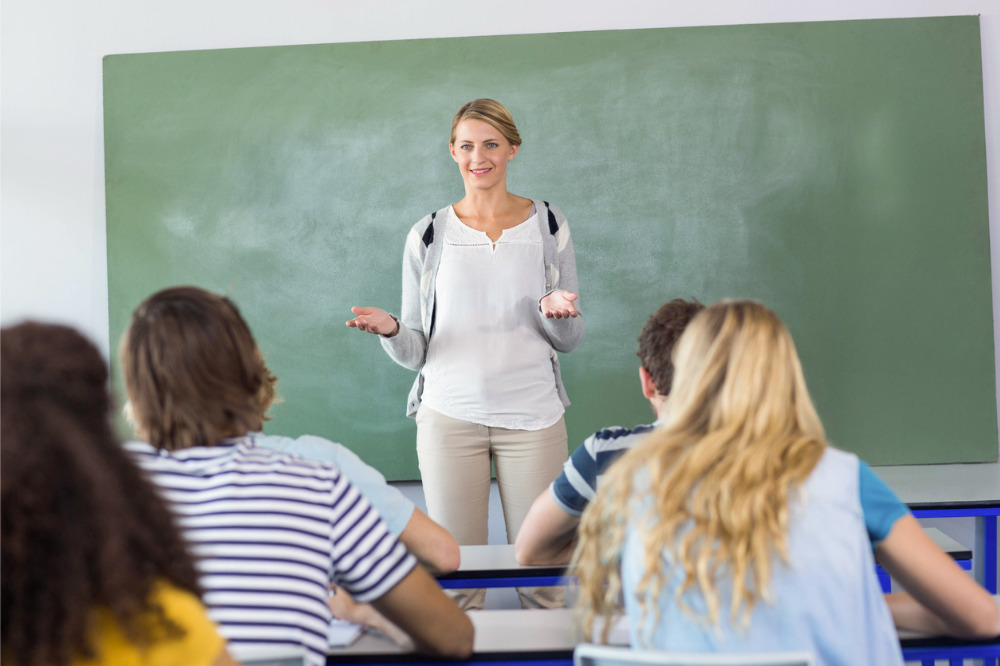
As Australian school leaders continue to navigate the disruptions associated with the COVID-19 pandemic, including ongoing safety concerns for returning students and staff, new research has highlighted a number of other complex challenges for the education sector.
For Dr Marcia Devlin, inaugural CEO of the new Victorian Academy of Teaching and Leadership, the question of what makes a good teacher has been thrown wide open in recent times. Education is changing from within and being forced to change from without.
Going global and going digital are far from being the whole story of education’s evolution. So, what does it mean to teach well in a world transformed?
In an article published this week for the Taylor & Francis journal Higher Education and Development, Dr Devlin and her co-author, Dr Gayani Samarawickrema of Victoria University, are calling for a wide-ranging reconsideration of the criteria by which effective teaching is judged – by government agencies, by schools, universities, teachers and by society at large – in view of a world defined by constant and profound change.
They argue that “while the global pandemic continues unabated through its second and into its third year, there is a need to develop new models of effective teaching – in tertiary, secondary, primary and early childhood settings– that empower educators to embrace the possibilities of disruption and ready them for teaching in crises.
“It could be the next global pandemic, it may be bushfires or cyclones that damage whole regions. Tragically, in some places, it could be a mass shooting in a school or on a campus.”
In dealing with a crisis-prone world, Dr Devlin says that “educators are now more aware that they have the responsibility to continue to facilitate student learning with compassion.
For Dr Devlin, the global pandemic and the whiplash of an unplanned shift to remote learning was an awakening, not just about how critical digital literacy is in effective teaching and learning, but to the nature of the world in which we now live, learn, and teach.
“The new focus of education may just have to be on how we meaningfully prepare learners for a complex and unpredictable world. What students may most need is to learn how to make sound decisions in changing situations, about which they have only evolving, incomplete evidence.
This brings with it the sense that we need education grounded in empathy. We need trauma-informed education that builds resilience for an anxious world of intense uncertainty.
“A question which increasingly concerns me,” says Dr Devlin, “is how to effectively teach to students to learn well while they live with large-scale, complex problems and change – that is, how to facilitate in them the agency they need to shape their own futures.
Dr Devlin and Dr Samarawickrema feel that in the near-future educators will need to work environmental and economic challenges into their curriculum.
“The new meaning of effective teaching may include considering complex solutions to complex problems, such as climate change, mass migration, global inequalities, ongoing war and conflict.” And in having a keen eye on these grand challenges, educators might discover that they reinvent themselves.
“Effective educators may have to become active global citizens who work with interconnected local and global challenges.
In part, that requires looking beyond their own subject areas and disciplines to embrace cross-disciplinary, multi-disciplinary and interdisciplinary thinking. Our present and future challenges urgently call for solutions that draw on many different disciplines.
“We clearly live in a time of ongoing and profound global changes,” says Dr Devlin.
“We see shifts economic power and political tensions, prevailing social inequality, climate change and ecological damage that puts human existence at risk, and significantly changing social norms. In addition, within the education sectors there have been major disruptions in the last decade.
“For instance, vastly wider participation – for example, mass higher education is now common across the world, and not just the developed world. This means unprecedented student diversity.
In Australia there is greater than ever university participation from first-in-family students, students from low socioeconomic status backgrounds, migrant, English as second language, First Nations, refugee and other so-called ‘non-traditional’ students.
“Education also increasingly involves accountability powered by data analytics, it occurs in ongoing digital transformations, and must contend with changing assessment expectations and practices, moves towards integrating learning into workplaces, and students wanting to be treated as partners in their own education. All of this is affecting educators’ roles, in schools as much as in universities.
“Effective future educators will be the ones who understand the disruptions and upheavals of the time and adapt to meet them,” says Dr Devlin.
The original version of this article was published by MCERA


